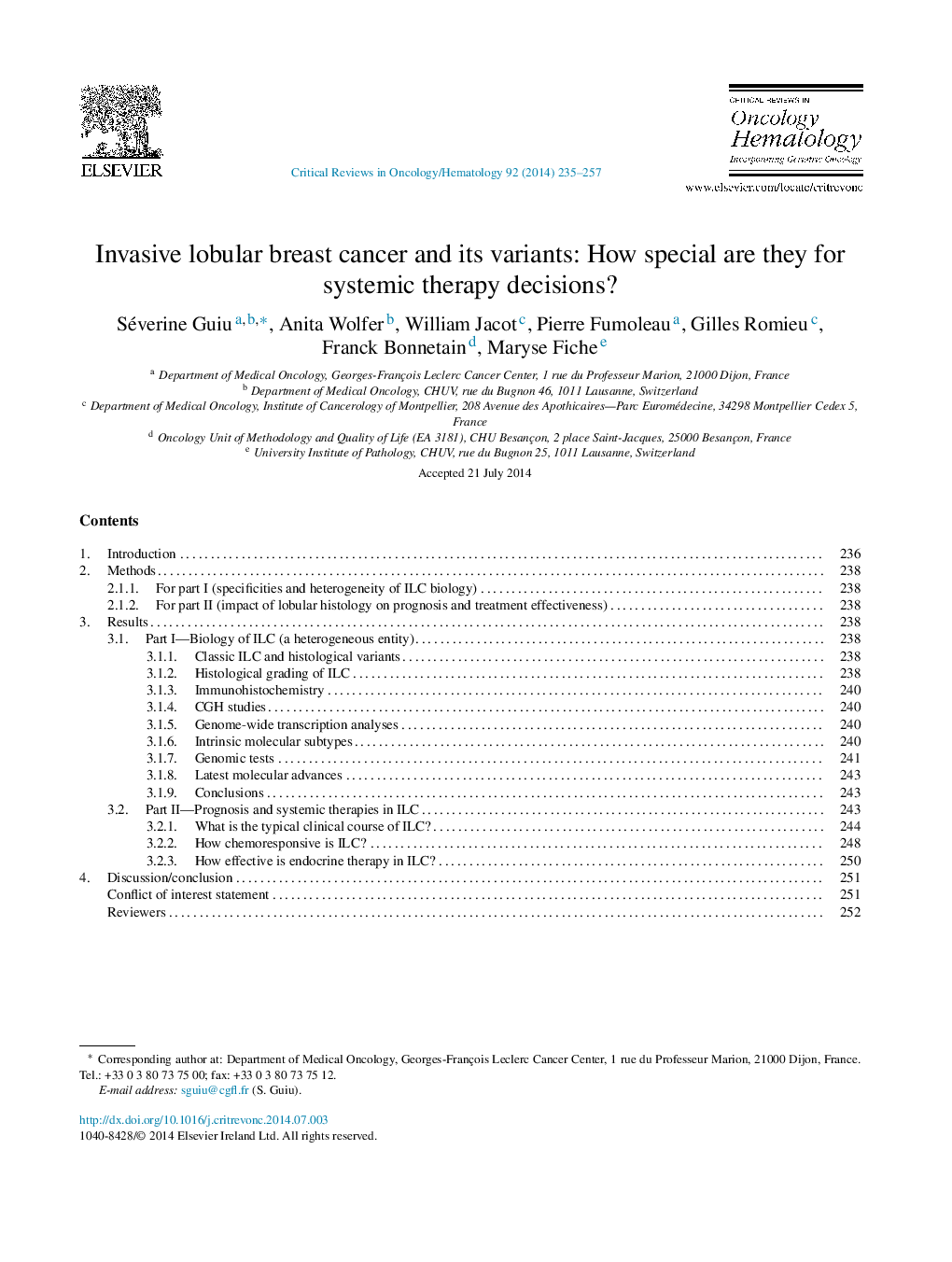| Article ID | Journal | Published Year | Pages | File Type |
|---|---|---|---|---|
| 3328676 | Critical Reviews in Oncology/Hematology | 2014 | 23 Pages |
•Invasive lobular carcinomas (ILC) are specific and heterogeneous at a molecular level.•ILC does not have an indolent course compared to invasive ductal carcinoma.•Molecular subtypes of ILC could determine the risk of relapse.•Neoadjuvant chemotherapy in ILC can be beneficial.•Adjuvant letrozole seems to be more effective than tamoxifen in ILC.
The WHO classification of breast tumors distinguishes, besides invasive breast cancer ‘of no special type’ (former invasive ductal carcinoma, representing 60–70% of all breast cancers), 30 special types, of which invasive lobular carcinoma (ILC) is the most common (5–15%). We review the literature on (i) the specificity and heterogeneity of ILC biology as documented by various analytical techniques, including the results of molecular testing for risk of recurrence; (ii) the impact of lobular histology on prediction of prognosis and effect of systemic therapies in patients. Though it is generally admitted that ILC has a better prognosis than IDC, is endocrine responsive, and responds poorly to chemotherapy, currently available data do not unanimously support these assumptions. This review demonstrates some lack of specific data and a need for improving clinical research design to allow oncologists to make informed systemic therapy decisions in patients with ILC. Importantly, future studies should compare various endpoints in ILC breast cancer patients among the group of hormonosensitive breast cancer.
